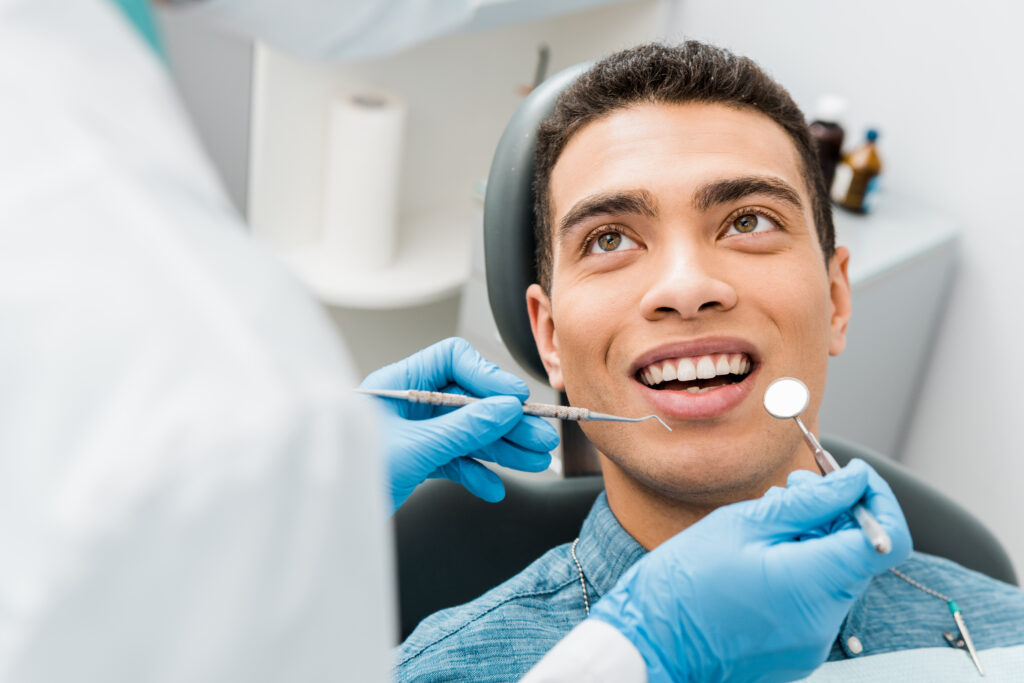Oral surgery can evoke apprehension, especially if you have no prior experience with such procedures. Nevertheless, the majority of oral surgeries are brief, typically completed within a few hours, and typically occur in an outpatient setting. Consequently, patients can swiftly return home to commence their recovery shortly after the surgical procedure.

Prior to undergoing surgical treatments like dental implant placement, bone grafting, or the extraction of impacted wisdom teeth, it is advisable to engage in some preparatory measures. Although consulting your dentist or oral surgeon for personalized advice on your upcoming surgery remains the best course of action, we’ve assembled a set of practical tips to assist you in gearing up for oral surgery.
Gather Essential Information
It is crucial to acquaint yourself with the specifics of the impending procedure and the accompanying pre-operative instructions. Your oral surgeon will furnish you with the knowledge required to prepare for the surgery. Being well-informed about what to anticipate before, during, and after the surgery can greatly enhance your confidence and composure. Pertinent inquiries to pose include:
- What is the anticipated duration of the surgery?
- Will you necessitate local or general anesthesia?
- Is it your responsibility to arrange your transportation back home following the procedure?
- Are there any supplements or medications that you must discontinue before the operation?
- What is the projected recovery period?
- Are there specific directives to adhere to before your appointment?
- Are there any prospective risks or complications of which you should be aware?
Stock Up on Soft Foods
In preparation for your oral surgery, it is prudent to procure an assortment of soft, easily digestible foods such as soups, oatmeal, protein shakes, applesauce, and yogurt. Opt for nutritious soft foods that can be effortlessly prepared and consumed. Avoid items that demand extensive chewing to prevent any irritation to your tender jaws and gums. During the initial week post-surgery, it is advisable to abstain from spicy, hard, acidic, and crunchy foods, as they are more likely to cause discomfort. The precise time for resuming your regular diet will be conveyed by your oral surgeon.
Plan for Post-Surgery Recovery
Your oral surgeon will furnish you with post-surgery care instructions and potentially prescribe medication for pain management. In many instances, it will be necessary to arrange for transportation from the dental clinic, particularly if the procedure involves general anesthesia. It is essential to ensure that your home is a comfortable and well-prepared environment for resting after the surgery. Furthermore, it is advisable to maintain the contact information for your dentist and oral surgeon should you have any concerns or inquiries following the surgery.
Comply with Fasting Guidelines
Depending on the specific type of oral surgery scheduled, fasting may be a prerequisite before the procedure. Your dentist will offer detailed guidance on all pre-operative prerequisites, including any dietary restrictions. It is imperative to diligently adhere to your dentist’s directives, as failure to observe the fasting period may necessitate the rescheduling of your surgery.
In Conclusion
Oral surgery may be the sole avenue to address issues affecting your teeth, gums, and jaws in some cases. Implementing preparatory measures before the surgery can contribute to a more comfortable and expedient recovery. If you harbor any uncertainties or queries about the preparations for your impending oral surgery, do not hesitate to reach out to your oral surgeon. Your dental team is readily available to respond to any concerns you may have.




